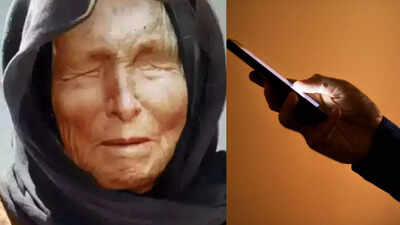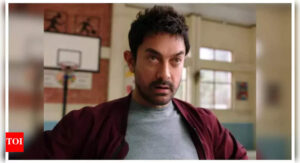Baba Vanga’s shocking prediction about mobile phones sparks global debate on digital addiction |

Though Baba Vanga passed away in 1996, the Bulgarian mystic’s prophecies continue to command attention across the globe. Renowned for her eerie foresight into world events—ranging from natural disasters to political upheavals—Vanga’s predictions often resurface when current events appear to mirror her cryptic warnings. In a surprising twist this year, her forecast does not concern war, pandemics, or environmental catastrophes. Instead, it strikes at the heart of modern society: our growing dependence on smartphones. Her prediction, suggesting a future where emotional detachment and digital addiction dominate human existence, has stirred serious concern among researchers, psychologists, and the public alike.
Baba Vanga predicted smartphone-driven emotional collapse
According to archival accounts and followers of her work, Baba Vanga had predicted a scenario in which the widespread use of mobile phones would begin to alter human behavior in irreversible ways. She reportedly warned that humanity’s over-reliance on smartphones could degrade not only physical health but also emotional and interpersonal well-being.
In her foresight, Vanga is said to have cautioned that human beings might gradually lose their capacity to experience genuine emotions, leading to an existence increasingly detached from reality. She warned of a future where individuals become more like machines—automated, disinterested in forming deep relationships, and tethered to digital devices for validation and stimulation.
Smartphone overuse in 2025 confirms Baba Vanga’s grim prediction
Modern research supports many of the concerns echoed in Baba Vanga’s prophecy. As of 2025, data from the World Health Organization (WHO) and various behavioral health studies indicate a sharp rise in mobile phone usage worldwide. On average, people spend over 7 hours a day looking at screens, with smartphone use accounting for nearly 4 hours of that time.
Psychological studies reveal that overuse of smartphones can lead to:
- Sleep disturbances due to prolonged exposure to blue light.
- Elevated stress levels driven by constant connectivity and social comparison.
- Reduced attention spans and lower productivity, especially among students and professionals.
- Mental health issues, including anxiety, depression, and increased loneliness.
Experts warn that the dopamine feedback loop created by social media platforms and mobile applications may be rewiring human brains, especially among the younger population.
Emotional intelligence fades in digital age—just as Baba Vanga warned
Vanga’s concern about diminishing emotional intelligence in a tech-heavy future is also echoed in current behavioral science. A growing body of research shows that digital communication, while efficient, often lacks the emotional richness of face-to-face interaction.
Social scientists report that young adults and teenagers are less likely to engage in deep conversations or exhibit strong empathy due to the reduced frequency of in-person interactions. Digital friendships, while widespread, are often shallow and transient. Many users admit to feeling isolated despite being constantly “connected” online.
This emotional erosion, as Vanga allegedly predicted, could redefine societal values, where convenience is prioritized over compassion, and instant gratification over long-term connection.
The rise of ‘Digital Detox’ movements
In response to these growing concerns, movements advocating for ‘digital detox’ have gained momentum. A digital detox involves consciously limiting or completely avoiding the use of digital devices for a certain period to reclaim mental clarity, emotional balance, and improved physical health.
Organizations, wellness retreats, and even governments in some countries are now promoting digital wellness. For example:
- France introduced legislation limiting work-related communication outside of business hours.
- South Korea has implemented smartphone-free school zones to encourage student interaction.
- United States tech giants like Apple and Google have built screen time monitoring tools into their operating systems.
These efforts echo the spirit of Baba Vanga’s warning: a call to step back, reflect, and restore balance in a hyper-connected age.
#VangaWarnedUs: Vanga’s tech warning echoes worldwide
The resurfacing of Baba Vanga’s prophecy has ignited widespread discussion on social media platforms, mainstream news outlets, and digital forums. Hashtags like #VangaWarnedUs and #DigitalDoom have trended globally, with many users sharing their own experiences with phone addiction and stories of attempting digital detoxes.
While skeptics continue to question the accuracy of Vanga’s predictions, her long list of eerie coincidences keeps her legacy alive. This latest revelation has re-energized public dialogue around technology, privacy, human connection, and the future of mental health.
Discover everything about astrology at the Times of India, including daily horoscopes for Aries, Taurus, Gemini, Cancer, Leo, Virgo, Libra, Scorpio, Sagittarius, Capricorn, Aquarius, and Pisces.







